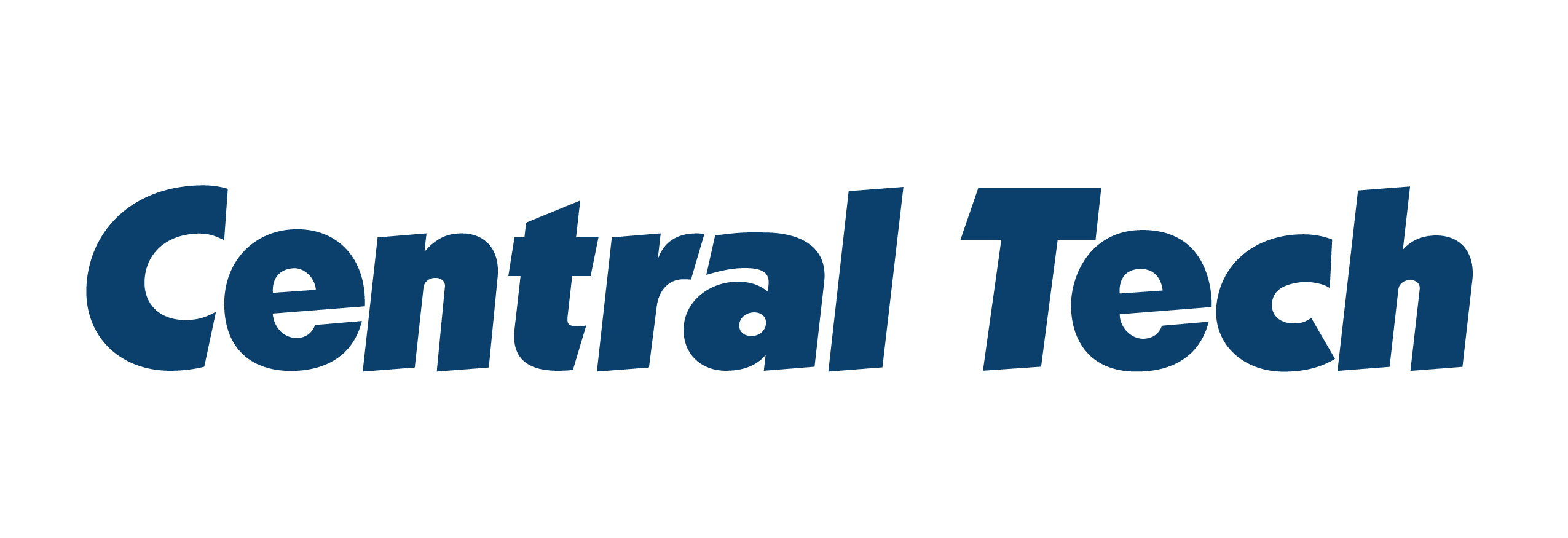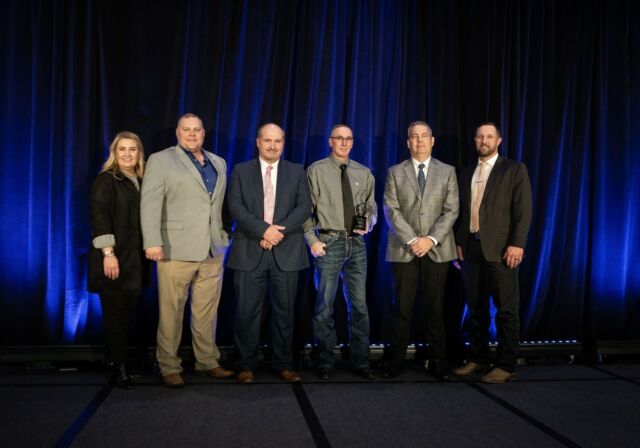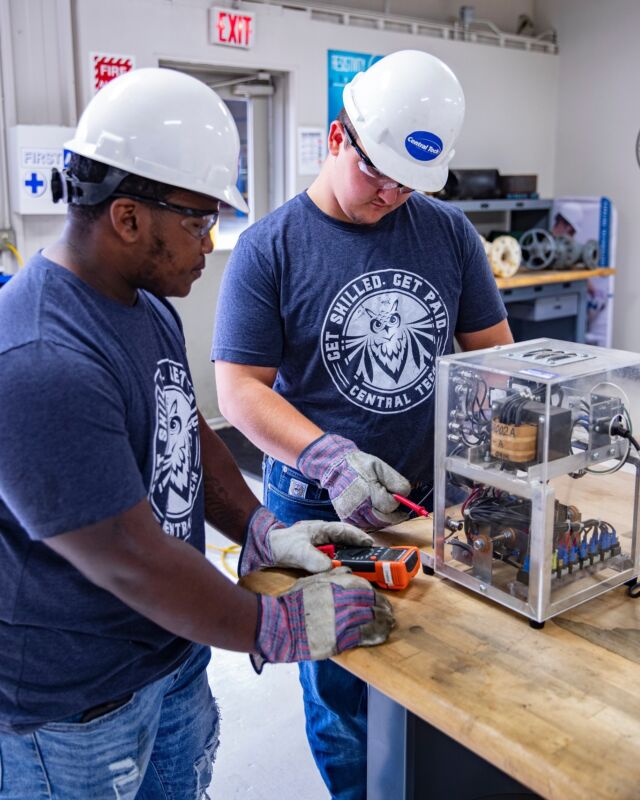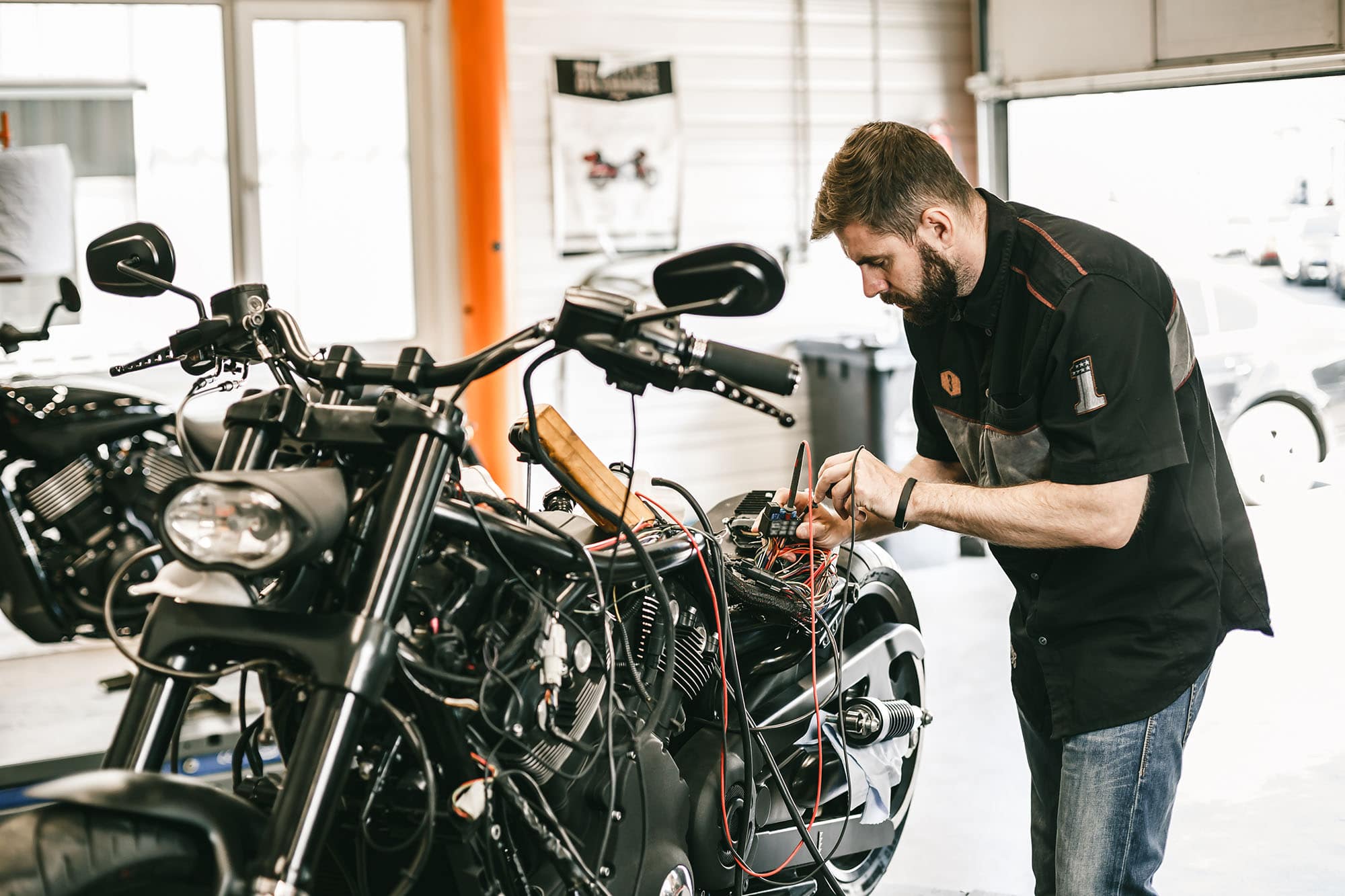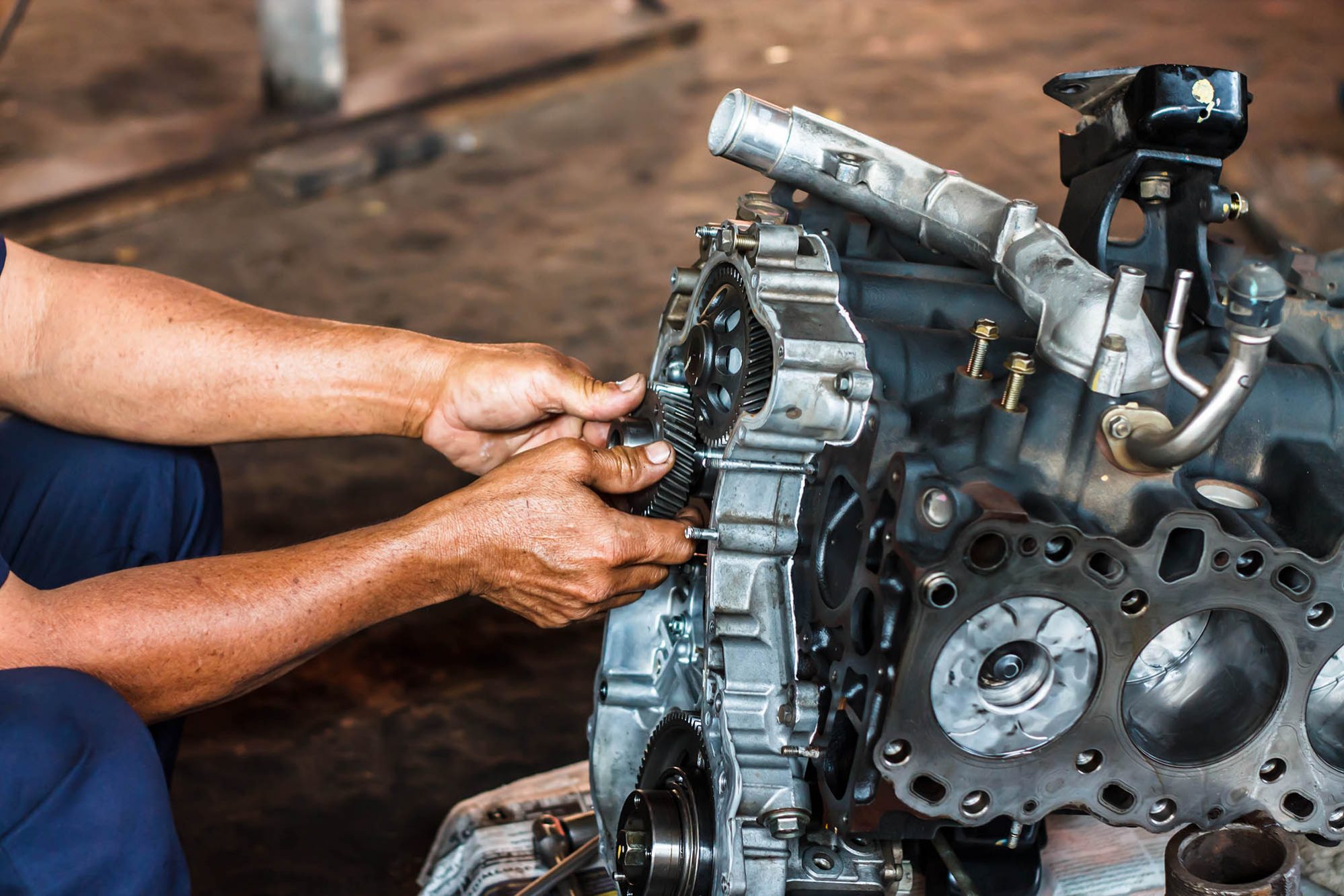PIPELINE TECHNOLOGY
You live in the heart of the PIPELINE CROSSROADS OF THE WORLD, one of the largest crude oil storage hubs on Earth. Discover this unique and dynamic program preparing you for pipeline operations. From learning the fundamentals of line locating, inspecting, and maintaining pipelines to hands-on experiences with pigging and valve operations on our pipeline simulator, this class offers an immersive opportunity for you to gain invaluable knowledge and skills in this vital industry. In addition, you have the opportunity to earn your CDL. You will leave ready to work for the pipeline industry.
PIPELINE CROSSROADS OF THE WORLD
If you’ve grown up around here, you are well aware you live in the heart of the Pipeline Crossroads of the World. And if you know people in the industry, then you know there’s money to be made.
Our Pipeline Technology class teaches pipeline construction and prepares you for the workforce with opportunities to grow. Our graduates wanting to stay local find jobs in and around the area, and for those ready to travel, they choose jobs that follow the pipe. If you appreciate hard work, don’t mind getting dirty, and enjoy working outside, this is the class for you.
Through great industry partnerships, you will tour storage facilities and hear from industry leaders in construction/maintenance, inspection, and major oil and gas companies.
So, what is pipeline construction? Let us run you through the whole gamut of putting a pipeline in the ground from start to finish.
“We appreciate that students learn how to solve real world problems using hands-on training.”
“As a student in the Pipeline class we are being prepared to go to work in the industry.”
PIPELINE CONSTRUCTION
Before constructing the pipeline, you must have access to the land and make one-calls to determine location of other lines underground.
After locating the lines, you will clear the right-of-way (easement) area of trees, fences, and anything above ground to make room for the pipeline.
Now that you have room, you will lay the pipe end-to-end along the easement. Using heavy equipment, a trench is excavated. Following strict OSHA guidelines, a bell hole is dug to prevent a cave-in.
The pipe is then welded together, and welds are coated. Before the pipeline can be lowered into the trench, a high voltage loop is placed around and passed down the pipe. This process is called jeeping and will alert you to any pinholes in the pipe or welds. Jeeping is done over the entire pipe before it is lowered in the trench and again as the pipe is lowered in.
Once in place, the trench must be properly backfilled and is ready for covering.
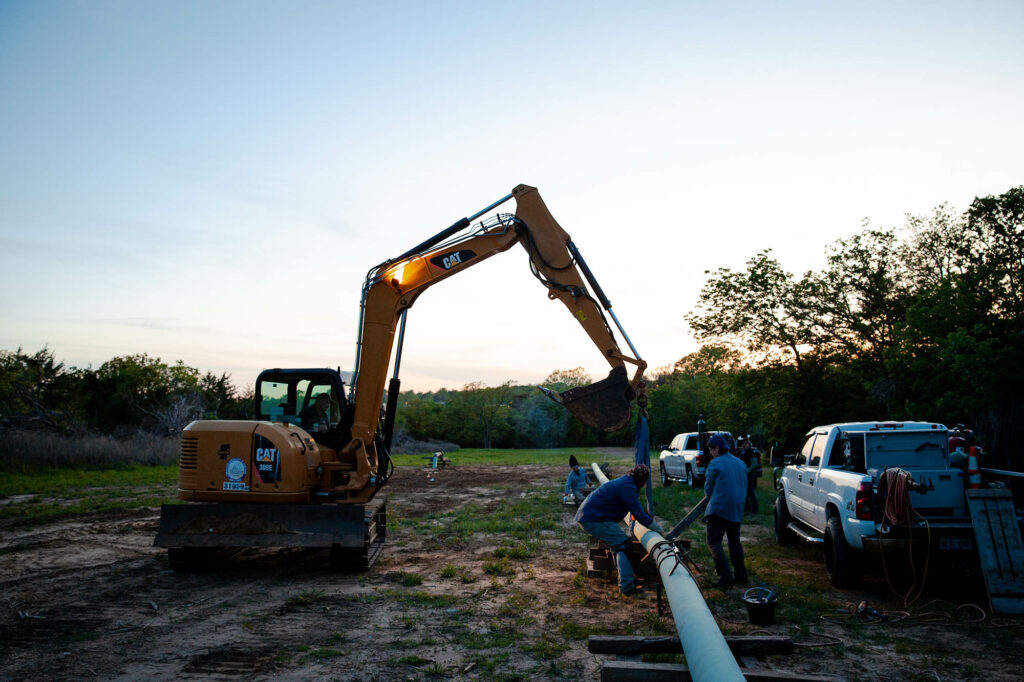
MAINTAINING A PIPELINE
LEAK SURVEY
You will learn how to check for leaks by manually walking a pipeline with a gas detector and/or visually looking for oil on the ground. This will get you within feet of the leak. Next, you will learn how to pinpoint a leak in the pipe within inches. Once the leak is found, the system is shut down, the pipe is cut out and replaced.
As you learn the process, our instructor can create leaks in the system, so you can troubleshoot solutions.
You will study CP, a technique used to control the corrosion of metal. The protection works by allowing a more sacrificial metal to corrode instead of the protected metal. By taking readings of the metal, you will learn what is protected and be able to troubleshoot readings.
POLYFUSION
You will learn how to use heat and pressure to join two pieces of thermoplastic pipe together using a pipe fusion process.
COATING / PAINTING
You will learn how to coat the pipe with the proper amount of thickness according to specs. This provides a constant protective lining that adheres to the metal to protect it from rust and corrosion therefore maintaining pipeline integrity.
PIGGING
Pigging is the practice of using a pipeline inspection gauge (pig) to clean and inspect the pipeline without stopping product flow. The pig is inserted into the pig launcher. Once the launcher is closed, the pressure of the product flowing through the pipe will push it along the pipe until it reaches the receiving trap. You will learn how to launch a pig on a two-inch pipeline in the classroom before moving to the outdoor site.
FACILITIES
This year, as a student, you will construct a pipeline in an established area behind the school. Since we train employees for many oil and gas companies, our students will utilize our company training facilities, a 2-acre line locating field and a fully-simulated oil and gas storage facility with control center monitoring.
PIPELINE TECHNOLOGY
PATHWAY
PIPELINE TECHNOLOGY/CDL
PATHWAY
DETAILS
This program is designed to give you the essential knowledge and skills for jobs in the Pipeline Corrosion and Pipeline Operations industry. A large amount of the training will concentrate on hands-on activities. You will learn about:
- Cathodic Protection Installations, Repair, Maintenance, & Measurement
- Excavation
- Valve Inspection
- Pipeline Communications
- Locating
- Pipeline Safety
You will train on an outdoor pipeline trainer.
AREAS OF STUDY
- Core Curriculum, Hand Tools, Drawings & Safety
- Tools, Meters & Test Equipment
- Introduction to Pipeline Measurement & Maintenance
- Pipeline Tests & Repairs
- Pipeline Electrical & Instrumentation
- Pipeline Inspection
- Pipeline Coatings & Inspection
- Pipeline Communication & Operations
- Pipeline Equipment & Maintenance
- Abnormal Operating Conditions/Quality Control
- Valve & Coating Inspection/Readers
DETAILS
In addition to the curriculum for the Pipeline Technology class, you will receive the training necessary to test for your Class A CDL.
#centraltechPipe
@endurousa Inside Sales Representative, Matt Hodson, gave Pipeline students a hands-on experience. 💥
They had the opportunity to understand the importance of pigging in the pipeline sector and use Enduro cleaning tools.
#centraltechPipe
Students from Pipeline had the opportunity to try out the heavy equipment simulator, experiencing a virtual reality of their future. 👏
#centraltechPipe
Central Tech and @geedingconstruction teamed up to strengthen Oklahoma`s growing pipeline workforce. 🤝
Serving as an advisory member for our Pipeline Technology program, Geeding willingly offered their expertise on curriculum, trending equipment, and training opportunities. In addition, they utilize our business and industry training services. Geeding employees assisted in the overall plan and construction of two outside training yards, providing hands-on training for students and excavation training business clients. Our partnership has provided countless opportunities for Geeding to hire Central Tech graduates, with additional students participating in internship opportunities with the company.
#centraltechedu #centraltechPipe #centraltechBIS
Our pipeline class along with a few advisory board members visited the ONE Gas training center and simulation city in Tulsa, Oklahoma. 🎯
The trip was full of information, showcasing the necessary skills required to work at ONE Gas. Plus, they were able to gather training ideas to benefit our own Pipeline Technology program!
#centraltechPipe
Power your future with a career in energy! 🔌
Learn more: centraltech.edu/classes
🔹 Electrical Trades
🔹 Welding/Fabrication Technology
🔹 Lineman Technology
🔹 Pipeline Technology
🔹 And more...
#centraltechElectrical #centraltechWeldFab #centraltechLineman #centraltechPipe #CareersInEnergyWeek
Shine bright like a diamond. 💎
Our evening welding and pipeline class putting in late hours!
#centraltechedu #centraltechPipe
Evening Welding 🤝 Pipeline Technology
One CT class is cool, but two CT classes is so much cooler! Our Sapulpa Evening Welding class traveled to our Drumright campus to lend a helping hand. #centraltechedu #centraltechPipe
ATTENTION! 📢 Learning experience from the best near the Pipeline Capital of the World available now. Apply: centraltech.info/PipelineTech #centraltechPIPE
Our Pipeline Technology students have been busy the last few weeks. They partnered with Evening Welding from the Sapulpa campus to weld the joints of pipe together. Then, they learned how to sandblast and properly coat each joint to industry standards. #centraltechedu #centraltechPipe
Pipeline Technology students learn how to operate a line locator correctly. It’s important to identify the location of underground pipes before breaking ground on any construction project - preventing injury or damage of property
https://bit.ly/3vggI2Z
#centraltechedu #centraltechPipe
Pipeline students got to hear from
industry leader Mr. Bowman of Enbridge. He explained
the operations of an oil tank farm and the numerous
job opportunities in the oil and gas industry.
https://bit.ly/3vggI2Z
#centraltech #centraltechPipe
In this one-of-a-kind Pipeline program, students learn the basics of locating, inspecting, and maintaining pipelines, as well as the cathodic protection process. They progress from simply understanding the parts of a pipeline and how they work to pigging and valve operations on our 10-acre liquid and gas pipeline simulator.
LEARN MORE > https://bit.ly/3cvqxB2
#centraltechedu #centraltechPipe
Pipeline Technology students are making progress with their pipeline construction project. This year students are learning about measuring and clearing of right of way, importance of the OneCall System, excavation, flagging, and marking. Students are excited to begin moving the pipe and learning how to install the approximately 450ft of pipe into the ground as spring approaches.
#centraltechedu #centraltechPipe
Today our Pipeline Technology students had the opportunity to tour the Plains All American tank farm south of Cushing. They learned about the day-to-day operations of the facility, career opportunities, and were able to see how the skill and knowledge they are learning at Central Tech is utilized in the pipeline industry. HUGE thank you to Plains for providing our students with this opportunity!
#centraltechedu #centraltechPipe
Sneak Peek: Pipeline students assist with the development of a new excavation training site. #centraltechedu #centraltechpipe
MORE INFORMATION
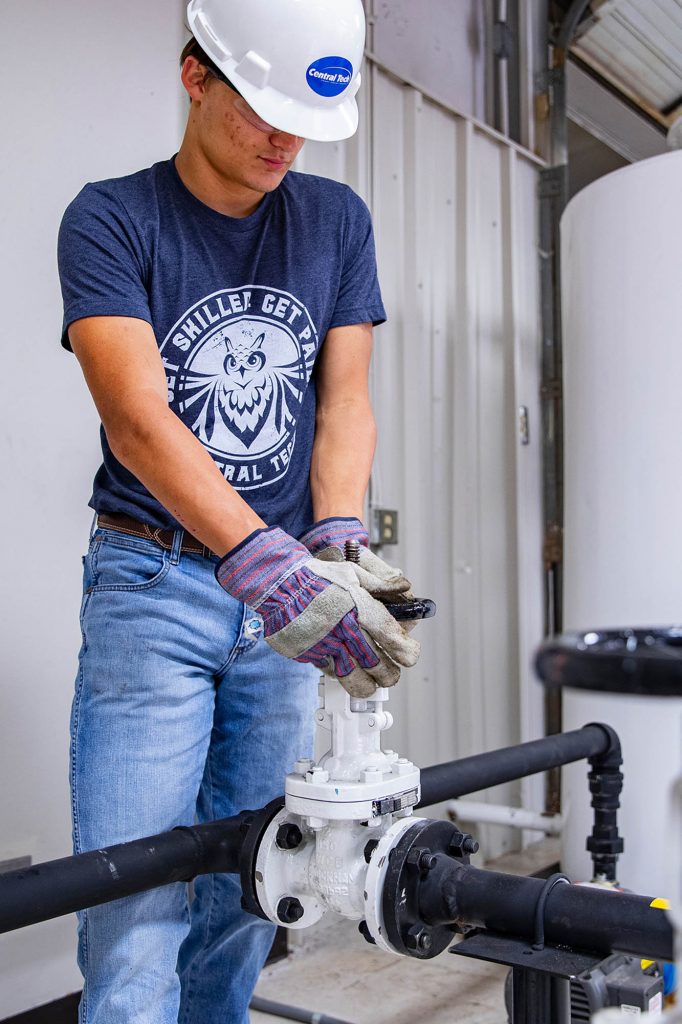
The annual average salary for a Pipeline Operator is $59,228.
Graduates can go straight to work for service companies or pumpers. Occasionally you may find your first job as a pipeline operator. Others move on to college, usually OSU-IT for Pipeline Integrity Technology.
- OSHA 10
- OSHA 30
- Forklift
- LO/TO
- Polyfusion and Destructive Testing Certification
- 40hr Hazwoper
- CDL
- Students: Adult & High School
- Campus: Drumright Only
- Times: Morning, Afternoon, Full Day
- School Year: August-May
Ask about Financial Aid and Scholarship availability.
- Electrical Trades
- Industrial Automation
- Industrial Automation (Short-Term)
- Truck Driver Training
- Welding
- Welding, Evening (Short-Term)
